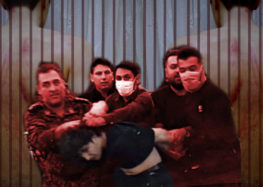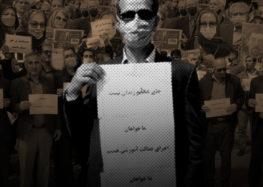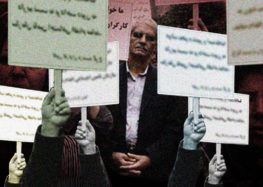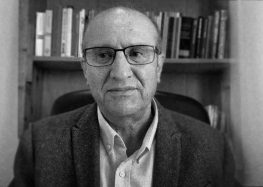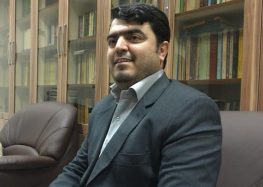These Four Educators Were Behind Bars in Iran on World Teachers’ Day 2018

Four teachers are currently behind bars in Iranian prisons for engaging in peaceful trade union activities, according to Rassoul Bodaghi, a formerly imprisoned labor activist and senior member of the Iranian Teachers’ Trade Association (ITTA).
Speaking to the Center for Human Rights in Iran (CHRI) on the occasion of World Teachers’ Day, October 5, 2018, Bodaghi identified the peaceful activists as:
Esmail Abdi: A high school teacher and former ITTA secretary general, Abdi has been serving a six-year prison sentence since November 2016 in Evin Prison in Tehran for the charges of “propaganda against the state” and “collusion against national security.”
Mahmoud Beheshti-Langroudi: A former ITTA spokesman, Beheshti-Langroudi’s most recent imprisonment began in September 2017. He is serving multiple sentences for his peaceful trade union activities in Evin Prison.
Rouhollah Mardani: In June 2018, Mardani, a graduate student in Persian literature at the University of Tehran who had also worked as a teacher in the city of Nourabad in Lorestan Province, was sentenced by a preliminary court to six years in prison. He was also banned for two years from political and social activities and prohibited from leaving the country for two years. Mardani was imprisoned for taking part in peaceful protests on campus in late January 2018; the charges he was convicted of are unclear. He is in Evin Prison.
Mohammad Habibi: Arrested for peacefully advocating teachers’ rights, Habibi was sentenced by a preliminary court in August 2018 to seven years in prison and 74 lashes. He was also banned for two years from political and social activities and prohibited from leaving the country for two years. Habibi was convicted of the following charges: “assembly and collusion against national security,” “propaganda against the state” and “disturbing public order.” He is in the Great Tehran Penitentiary.
“This is an ideological conflict between the Islamic Republic—a narrow-minded dictatorship that demands blind submission from all the people of every sector—and the teachers who do not accept that kind of thinking,” Bodaghi told CHRI.
In an open letter from Evin Prison, two of the imprisoned teachers, Esmail Abdi and Mahmoud Beheshti-Langroudi, noted that teachers are banned from peacefully protesting for their rights.
“In most parts of the world, teachers will celebrate this day while in some parts, justice-seeking teachers have been enchained,” said the letter.
“Teachers and workers in Iran are denied the right to gather and assemble freely and independently and if they make efforts to do so, they will face the threat of being fired or imprisoned,” they added.
Iran’s Constitution guarantees freedom of assembly but security forces routinely arrest attendees for peacefully protesting against state policies.
According to Article 27 of the Constitution, “Public gatherings and marches may be freely held, provided arms are not carried and that they are not detrimental to the fundamental principles of Islam.”
Labor activism in Iran is seen as a national security offense; independent labor unions are not allowed to function, strikers are often fired and risk arrest, and labor leaders are consistently prosecuted under catchall national security charges and sentenced to long prison terms.
“Iranian teachers are trying to prevent the educational system from further expanding as a cash generator,” wrote Abdi and Beheshti-Langroudi in their letter.
“They demand free and quality education for all children but with the state’s privatization policies, the authorities are forcing many children of low-income families to drop out of school and peddle in the streets,” they said.
The political prisoners also noted that teachers all around the country are forced to protest due to unpaid wages.
“Official sources have reported that in the 2018-19 academic year, there’s a shortage of 300,000 teachers and the country’s economic situation has put a lot of pressure on existing teachers who have not been paid their salaries for part-time and full-time work,” wrote Abdi and Beheshti-Langroudi.

